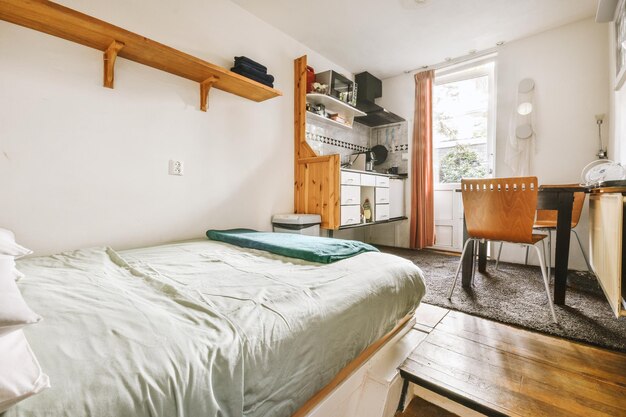Is Listing Your Apartment on Airbnb a Viable Option?
With the popularity of Airbnb, many apartment dwellers wonder if they can join in on the short-term rental action. While the idea of turning your apartment into a temporary hotel can be enticing, it's important to understand the complexities involved. Yes, you may be able to Airbnb your apartment, but it depends on several factors. Let's explore what you need to know, along with some financial resources that can keep you afloat as you navigate this possibility.
Your Lease and Building Policies
The first step is to look at your lease agreement. Many leases include clauses that restrict subleasing or short-term rentals like those offered through Airbnb. Violating these clauses can lead to steep penalties or even eviction. Always check with your landlord or property management before proceeding, and get their consent in writing if possible.
Moreover, some buildings have their own set of rules regarding short-term rentals. Condo associations or homeowners associations may impose restrictions independent of your lease, so it's crucial to clarify these rules beforehand.
Local Laws and Regulations
Cities around the world have different laws when it comes to short-term rentals. Some places have embraced the Airbnb model, while others have strict regulations in place to control it. For example, certain cities require hosts to obtain permits or licenses before listing on Airbnb. Research your local laws to ensure you comply with any requirements, such as tax obligations and safety standards.
Financial and Insurance Considerations
Renting your apartment on Airbnb can be financially rewarding, but it comes with its own set of risks. Consider the potential wear and tear on your property, along with liability for damages. Consult with your insurance provider to make sure you're covered in case of accidents or theft. Some insurance companies offer policies specifically designed for short-term rentals, which can offer peace of mind.
Additionally, keep in mind that Airbnb income is usually taxable. Be prepared to report this on your tax return, and consider setting aside a portion of your earnings to cover any tax liabilities.
Exploring Your Financial Options
If Airbnb is not a viable option for you, or if you need additional financial assistance, consider these alternatives:
- Government Aid Programs: Look into federal and state rental assistance programs that might help you cover expenses if you're struggling.
- Financial Assistance: Some non-profits offer grants or loans to those in need. These could be valuable resources if you're facing financial hardship.
- Debt Relief Options: If you're overwhelmed by debt, consultation with a financial advisor can help you explore consolidation or settlement options.
- Credit Solutions: Credit counseling agencies can assist you in managing and improving your credit score, making it easier to access favorable loans or credit terms.
- Educational Grants: Returning to school or gaining additional certification could boost your career and financial prospects. Explore educational grants that might be available to you.
As you evaluate your path forward, consider these programs, services, and opportunities to optimize your financial stability and security.
📊 Resources for Financial Assistance
🇺🇸 Government Aid Programs
- Federal rental assistance
- State-specific programs
💰 Financial Assistance
- Local non-profit grants
- Emergency relief funds
💸 Debt Relief Options
- Debt consolidation
- Debt negotiation services
💳 Credit Solutions
- Credit counseling agencies
- Credit score improvement services
🎓 Educational Grants
- Federal student aid
- Private sector scholarships
Navigating the world of Airbnb rentals can be complex, but with the right information and resources, you can make an informed decision. Whether you choose to Airbnb your apartment or explore other financial avenues, the key is to stay informed and proactive about your choices.

